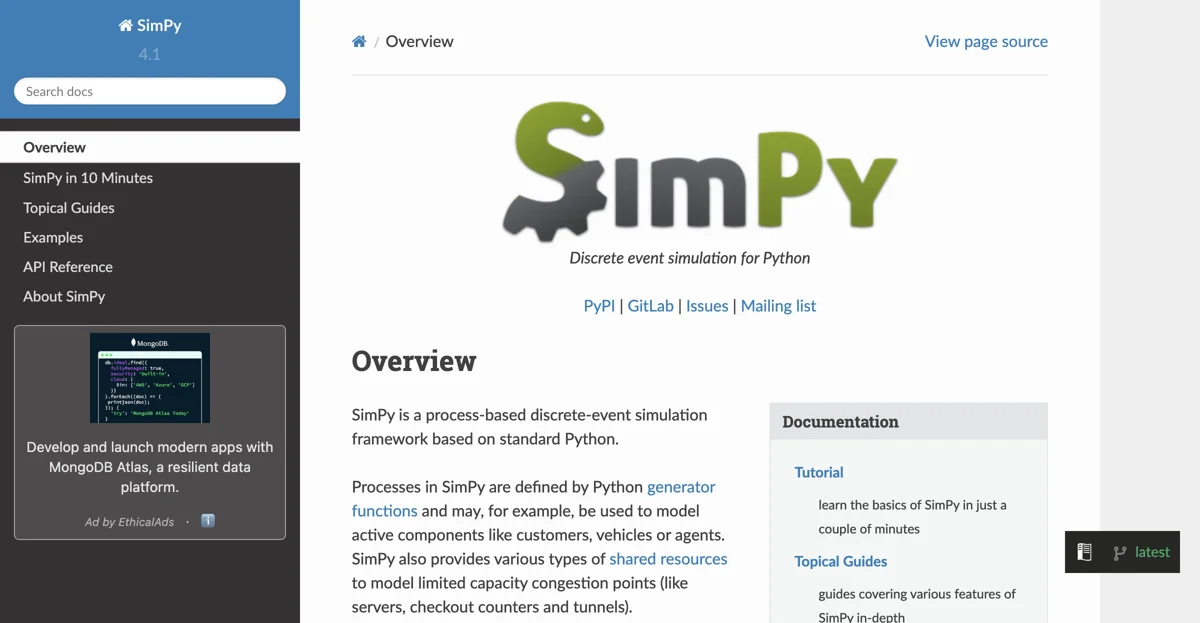SimPy stands as a robust, process-based discrete-event simulation framework designed for Python developers. It leverages Python generator functions to define processes, enabling the modeling of active components such as customers, vehicles, or agents. Additionally, SimPy introduces various types of shared resources to simulate limited capacity congestion points, including servers, checkout counters, and tunnels. This flexibility allows simulations to run 'as fast as possible', in real-time (wall clock time), or through manual event stepping. While SimPy is theoretically capable of continuous simulations, it lacks specific features to facilitate this directly. Conversely, it may be considered overkill for simulations with a fixed step size where processes do not interact with each other or shared resources.
A practical example of SimPy's application is the simulation of two clocks ticking at different intervals. This example illustrates the framework's capability to manage concurrent processes efficiently. SimPy's comprehensive documentation includes a tutorial for beginners, topical guides for in-depth exploration of its features, usage examples, and a detailed API reference. Released under the MIT License, SimPy encourages the sharing of modeling techniques within its community, fostering a collaborative environment for simulation model developers.
SimPy's versatility extends beyond Python, with reimplementations available in other programming languages, as detailed in the list of ports. This adaptability, combined with its comprehensive documentation and community support, makes SimPy an invaluable tool for developers seeking to implement discrete-event simulations in their projects. Whether for academic research, industrial applications, or personal projects, SimPy offers a scalable and efficient solution for simulation modeling.

